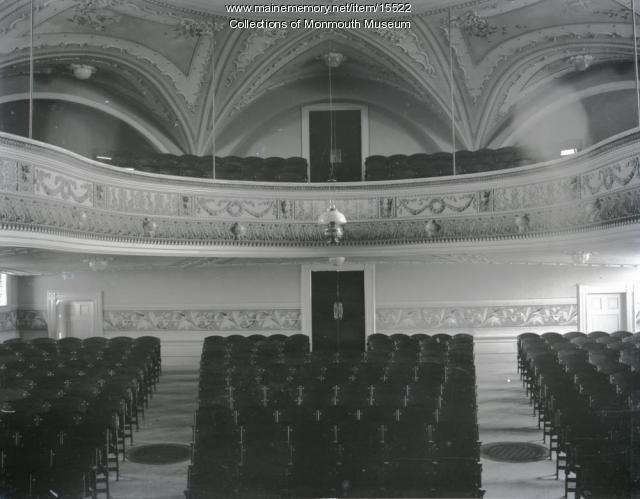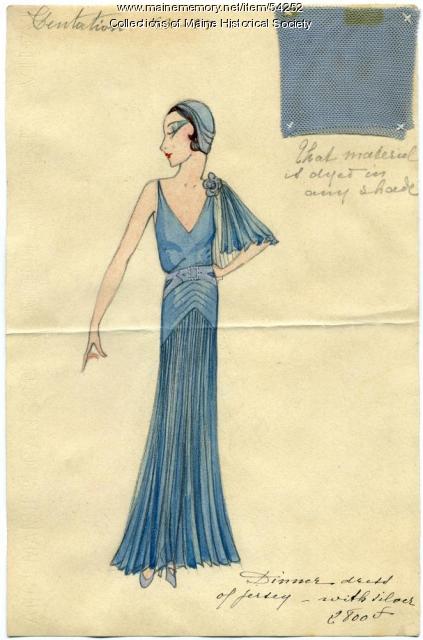Keywords: Bell
- Historical Items (292)
- Tax Records (74)
- Architecture & Landscape (3)
- Online Exhibits (44)
- Site Pages (74)
- My Maine Stories (5)
- Lesson Plans (1)
Online Exhibits
Your results include these online exhibits. You also can view all of the site's exhibits, view a timeline of selected events in Maine History, and learn how to create your own exhibit. See featured exhibits or create your own exhibit
Exhibit
Otisfield's One-Room Schoolhouses
Many of the one-room schoolhouses in Otisfield, constructed from 1839 through the early twentieth century, are featured here. The photos, most of which also show teachers and children, were taken between 1898 and 1998.
Exhibit
The Schooner Bowdoin: Ninety Years of Seagoing History
After traveling to the Arctic with Robert E. Peary, Donald B. MacMillan (1874-1970), an explorer, researcher, and lecturer, helped design his own vessel for Arctic exploration, the schooner <em>Bowdoin,</em> which he named after his alma mater. The schooner remains on the seas.
Exhibit
"Alexander Graham Bell, inventor of the first telephones, started the Dictaphone Company. Bell improved on Edison’s phonograph by adding new recording…"
Exhibit
In Canada During the Civil War
One surviving letter from the family of Francis Pratt to the young man who was in Canada in 1865 suggests that going to Canada to escape military service during the Civil War was not unheard of. The letter also suggests money was removed to Canada to protect it.
Exhibit
Enemies at Sea, Companions in Death
Lt. William Burrows and Commander Samuel Blyth, commanders of the USS Enterprise and the HMS Boxer, led their ships and crews in Battle in Muscongus Bay on Sept. 5, 1813. The American ship was victorious, but both captains were killed. Portland staged a large and regal joint burial.
Exhibit
Music in Maine - Longfellow Family Music
"… in the 1750s and early 1800s like Bonnie Doon, Belle Isle March, I Have Saved Thee, and Hark! The Goddess Diana."
Exhibit
The West Baldwin Methodist Church, founded in 1826, was one of three original churches in Baldwin. While its location has remained the same, the church has undergone numerous changes to serve the changing community.
Exhibit
John Y. Merrill: Leeds Farmer, Entrepreneur, & More
John Y. Merrill of Leeds (1823-1898) made terse entries in diaries he kept for 11 years. His few words still provide a glimpse into the life of a mid 18th century farmer, who also made shoes, quarried stone, moved barns, made healing salves -- and was active in civic affairs.
Exhibit
2009 marked the bicentennials of the births of Abraham Lincoln and his first vice president, Hannibal Hamlin of Maine. To observe the anniversary, Paris Hill, where Hamlin was born and raised, honored the native statesman and recalled both his early life in the community and the mark he made on Maine and the nation.
Exhibit
Passing the Time: Artwork by World War II German POWs
In 1944, the US Government established Camp Houlton, a prisoner of war (POW) internment camp for captured German soldiers during World War II. Many of the prisoners worked on local farms planting and harvesting potatoes. Some created artwork and handicrafts they sold or gave to camp guards. Camp Houlton processed and held about 3500 prisoners and operated until May 1946.
Exhibit
The small town of Andover landed on the international map in 1962 when the Earth Station that had been built there successfully communicated with Telstar, the first telecommunications satellite.
Exhibit
Rum, Riot, and Reform - Taverns, People, and Scenes
""At eleven o'clock on each day the bell would ring, the masons come down from the ladders, the joiners drop their tools, and all would partake of…"
Exhibit
The rocky coastline of Cape Elizabeth has sent many vessels to their watery graves.
Exhibit
Scarborough: They Answered the Call
Scarborough met every quota set by the state for supplying Civil War soldiers for Union regiments. Some of those who responded became prominent citizens of the town.
Exhibit
Music in Maine - Opera, Orchestras and Stages
"… jersey and accented with glass beads and metal bells, this jacket creates a rustling and ringing soundscape when worn."
Exhibit
Sagadahoc County through the Eastern Eye
The Eastern Illustrating and Publishing Company of Belfast, Maine. employed photographers who traveled by company vehicle through New England each summer, taking pictures of towns and cities, vacation spots and tourist attractions, working waterfronts and local industries, and other subjects postcard recipients might enjoy. The cards were printed by the millions in Belfast into the 1940s.
Exhibit
A Portland newspaper wrote about an ice storm of January 28, 1886 saying, "The city of Portland was visited yesterday by the most inconvenient storm of the season."
Exhibit
Cosmopolitan stylings of Mildred and Madeleine Burrage
Born in Portland, sisters Mildred Giddings Burrage (1890-1983) and Madeleine Burrage (1891-1976) were renowned artists and world travelers. Mildred's experiences studying painting in Paris and Italy, and the sisters' trips to Mexico and Guatemala inspired their artwork and shared passions for cosmopolitan and stylish attire. Housed at Maine Historical Society, The Burrage Papers include selections of original advertising drawings called "line sheets" from Parisian fashion houses dating from 1928 to 1936. Images of Madeleine's gemstone jewelry and Mildred's artwork accompany intimate family photographs of the sisters.
Exhibit
Building the International Appalachian Trail
Wildlife biologist Richard Anderson first proposed the International Appalachian Trail (IAT) in 1993. The IAT is a long-distance hiking trail along the modern-day Appalachian, Caledonian, and Atlas Mountain ranges, geological descendants of the ancient Central Pangean Mountains. Today, the IAT stretches from the Katahdin Woods and Waters National Monument in Maine, through portions of Canada, Greenland, Iceland, the Faroe Islands, and Europe, and into northern Africa.
Exhibit
Westbrook Seminary: Educating Women
Westbrook Seminary, built on Stevens Plain in 1831, was founded to educate young men and young women. Seminaries traditionally were a form of advanced secondary education. Westbrook Seminary served an important function in admitting women students, for whom education was less available in the early and mid nineteenth century.
Exhibit
Sugar and Spice: Our Vintage Recipes
Sugar and Spice: Our Vintage Recipes showcases historic recipes, dating from the 18th century to the 1950s, like sweet treats, traditional favorites, promotional printings, medicinal concoctions, curious libations, and recipes that have fallen out of favor.
Exhibit
John P. Sheahan, 1st Maine Cavalry, 31st Maine Infantry
John P. Sheahan of Dennysville served in the 1st Maine Cavalry from August 1862 until March 1864 when he was commissioned as a lieutenant in Co. E of the 31st Maine Infantry. His letters reveal much about the life of a soldier, including political views and thoughts about the war.
Exhibit
An enduring element of summer camps is the songs campers sing around the campfire, at meals, and on many other occasions. Some regale the camp experience and others spur the camp's athletes on to victory.
Exhibit
Elise Fellows White: Music, Writing, and Family
From a violin prodigy in her early years to an older woman -- mother of two -- struggling financially, Skowhegan native Mary Elise Fellows White remained committed to music, writing, poetry, her extended family -- and living a life that would matter and be remembered.
























